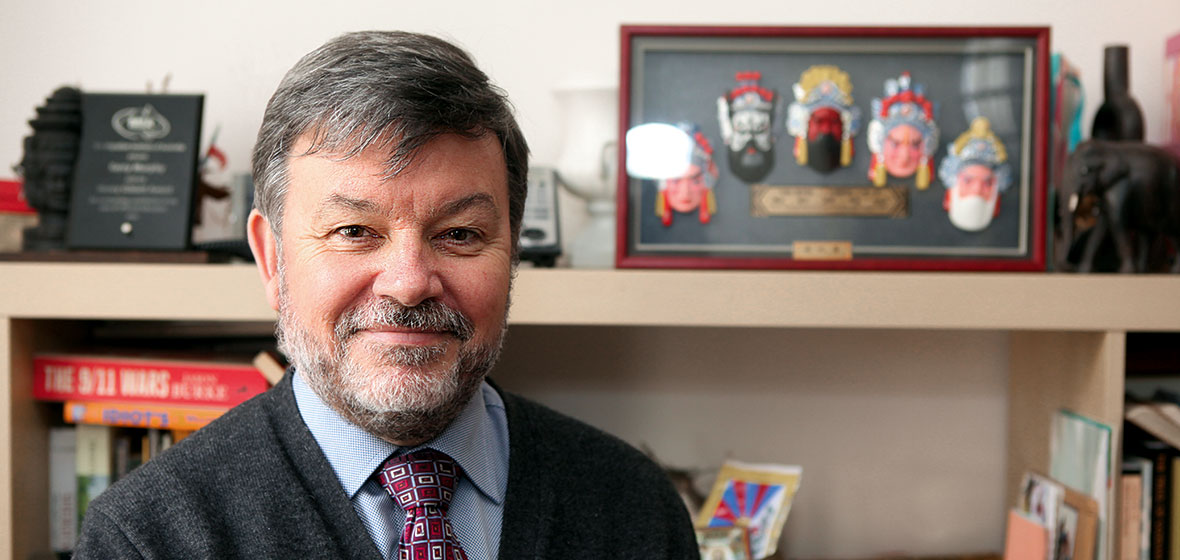There’s a map of Baghdad on the wall of the new office of D’Ambra Murphy Lawyers on Sydney’s Pitt Street. Kerry Murphy refers to it often as the names of various Baghdad suburbs and the militia groups controlling each are the kinds of details he uses to advocate for people seeking asylum in Australia. “You have to know your client’s background and, more importantly, the reasons why they left,” Murphy says. One of the most experienced immigration lawyers in NSW, Murphy, 53, laments that the system for dealing with refugees and asylum seekers has become “tougher and tougher”. “While legal funding for people seeking asylum keeps being cut, the application form is now 41 pages and 101 questions long,” he says. “When a person seeks asylum in Australia, they need to account for everywhere they’ve worked, lived and studied for the past 30 years. It’s especially difficult if your country is a war zone.” Murphy started as a solicitor in a suburban firm then took on an advocacy job at the Jesuit Refugee Service (JRS) from mid-1993 to early 1997, and has been on the JRS board since 2000. After eight years at Craddock Murray Neumann Lawyers, where he met his wife, solicitor Lisa D’Ambra, the pair set up their immigration law practice in 2006. The couple worked together in remote towns in Western Australia while working with clients in detention centres. Murphy tells JANE SOUTHWARD about his work in the law.
“I followed my dad into the law even though he said not to do it. My interest was more in history and languages, which was appropriate given the work I do now. One of the good things in this area of law is that you get a glimpse of life that you have never had. You meet people from interesting places who have had very different lives to your own and you hear stories that otherwise you might just read about in the paper or hear about in the news.
I started studying Arabic a few years ago because of the clients. I find it interesting and challenging. If you know a bit of their language, it can make clients feel more relaxed.
I started working as a solicitor in a small practice in Rockdale in 1986 after studying at Sydney University. I would recommend working in a small practice to young lawyers as I was exposed to a whole lot of different areas of the law workers compensation, family law, conveyancing, local court matters, wills and estates. In 1998, I went to work for Craddock Murray Neumann and did a lot of work flying in and out to see clients in detention centres. Port Hedland and Derby were pretty bad, Woomera was worse. It’s such an isolated place and there’s just nothing there. It’s one of the difficulties the clients faced, they were just stuck in this detention centre in the middle of the desert, nothing was happening around them, and they couldn’t see progress in their case for years.
One of the most satisfying cases I have worked on involved a Turkish Kurdish woman who obtained a fake passport and entered Australia. She had been tortured in Turkey due to her political activities. I remember when I was interviewing her to prepare the case, she had to leave the office every 15 minutes. She was in tears because it was so traumatic for her to go through details of the physical and sexual assaults.




